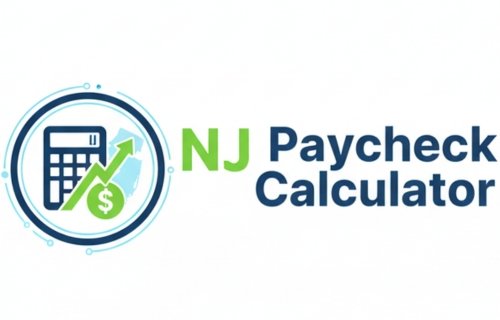
Working overtime can feel rewarding — but it also changes how your paycheck looks.
In New Jersey, overtime pay increases your gross income, affects how much state and federal tax you owe, and slightly alters your take-home pay.
Let’s break down exactly how overtime pay works in New Jersey, how it impacts your paycheck, and what you can expect after taxes.
Overtime Means More Pay — and Slightly Higher Withholding
If you’re a non-exempt employee in New Jersey, you must be paid 1.5 times your regular hourly rate for all hours worked beyond 40 in a workweek.
Here’s what that looks like in practice:
| Type | Hours Worked | Rate | Earnings |
|---|---|---|---|
| Regular Pay | 40 | $20/hour | $800 |
| Overtime Pay | 5 | $30/hour (1.5×) | $150 |
| Total Gross Pay | — | — | $950 |
That extra $150 increases your gross pay, but also your taxable income, which means higher deductions for:
- Federal income tax
- Social Security & Medicare (FICA)
- New Jersey state income tax
Even with those deductions, your net pay will increase. You’ll simply keep a bit less than the full overtime amount.
Overtime Rules in New Jersey
1. Overtime Threshold
Overtime applies to hours worked over 40 in a week.
New Jersey follows federal standards — there’s no daily overtime rule.
Vacation, holiday, or sick days don’t count toward those 40 hours.
2. Overtime Pay Rate
Your overtime rate equals 1.5× your “regular rate of pay.”
That includes hourly pay and certain non-hourly earnings like commissions or shift differentials.
For example:
If your regular hourly rate is $25, your overtime rate becomes $37.50 per hour.
3. Who Qualifies
Only non-exempt employees qualify for overtime.
Executives, administrators, and certain salaried professionals may be exempt if they meet federal salary and duties tests.
How Overtime Affects Your Take-Home Pay
Let’s compare a standard paycheck versus one with overtime to show the difference after taxes.
| Category | 40 Hours | 45 Hours (5 OT) |
|---|---|---|
| Gross Pay | $800 | $950 |
| Federal Tax | $75 | $90 |
| FICA (SS + Medicare) | $61 | $72 |
| NJ State Income Tax (≈5%) | $40 | $47 |
| Net Pay | $624 | $741 |
The extra five hours of overtime earn you $117 more after tax, even though $150 was added to gross pay.
That’s because your paycheck withholding increases with higher earnings.
Does Overtime Push You Into a Higher Tax Bracket?
Overtime increases your income but doesn’t automatically push you into a higher bracket unless it raises your annual total income.
New Jersey’s state tax brackets range from 1.4% to 10.75%. Occasional overtime has little impact, but consistent extra hours could lead to slightly higher annual withholding.
Overtime and Payroll Deductions
Overtime also affects other paycheck deductions tied to gross pay:
- FICA (7.65%) – applied to all wages up to $168,600 (2025 limit)
- State Disability (TDI) and Family Leave Insurance (FLI) – percentages of gross income
- Retirement plan contributions – if you contribute a fixed percentage of pay, overtime boosts that contribution too.
Employers pay matching FICA and unemployment insurance on overtime wages as well.
Are Overtime Hours Taxed Differently?
No. Overtime pay is taxed at the same rate as your regular wages.
The higher withholding comes from the increased gross pay for that pay period — not a different tax rate.
Common Overtime Misunderstandings
- “Overtime pay is taxed more.”
False. The tax rate doesn’t change — the total taxable income just increases. - “Salaried employees can’t get overtime.”
Some salaried workers qualify if they’re non-exempt under the Fair Labor Standards Act. - “My paycheck didn’t go up much — why?”
Withholding and FICA scale with your earnings, reducing the visible increase slightly. - “Employers can average hours across weeks.”
Not in New Jersey — overtime is calculated week by week.
“Use the Overtime Pay Calculator to see how extra hours increase your earnings.”
“Estimate your total compensation using the New Jersey Paycheck Calculator with overtime pay included.”
“Check your deductions with the New Jersey Gross-to-Net Paycheck Calculator to see your real take-home amount.”
“Understand how Payroll Taxes Affect Overtime Pay and what’s withheld on additional income.”
“Learn more about New Jersey Minimum Wage Rates and overtime eligibility.”
“Compare regular and overtime earnings using the Hourly Paycheck Calculator.”
FAQs
1. How does overtime affect taxes in New Jersey?
It increases your taxable income for that pay period, leading to slightly higher withholding, but not a higher tax rate.
2. Does overtime count toward retirement or benefits?
Yes. If your benefits or retirement plan are based on pay, overtime earnings increase those contributions.
3. Are bonuses counted in overtime calculations?
Certain nondiscretionary bonuses must be included when computing your “regular rate of pay.”
4. Do remote or hybrid workers in NJ get overtime?
Yes, if they’re non-exempt and perform work over 40 hours for a NJ-based employer.
Juanita is the creator behind njpaycheckcalculator.org, dedicated to providing accurate and easy-to-use paycheck calculation tools for New Jersey residents. With a strong focus on clarity and reliability, she helps users understand their paychecks and tax deductions with confidence. Juanita is passionate about simplifying complex financial calculations, empowering users to make informed decisions about their income and budgeting.
